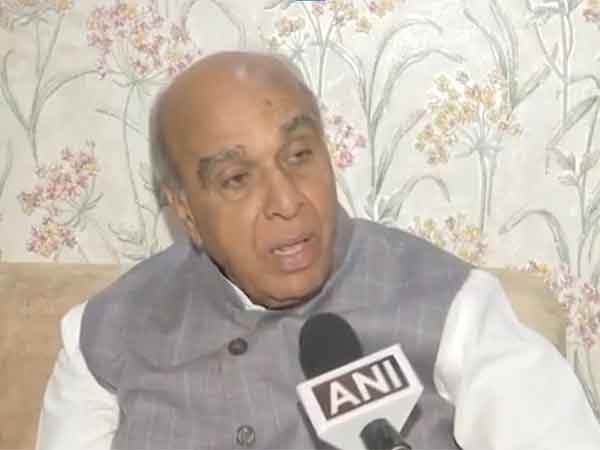Unparalleled US-India defence ties stand out in global arena: US diplomat Richard Verma
Feb 21, 2024

New Delhi [India], February 21 : United States Deputy Secretary of State for Management and Resources, Richard R Verma lauded the extraordinary nature of the defence partnership between the US and India, asserting that it stands apart from "any other country in the world".
In an interview with ANI, Verma expressed his admiration for the robust and inspiring joint defence exercises conducted by the two nations, noting their sophistication at every level.
"The US and India are major defence partners, a status we don't have with any other country in the world. We are building this incredibly kind of robust defence relationship. When I go and see the defence exercises that our two militaries do together, it's very heartening. It's very inspiring. It's very sophisticated at every level," he said.
India has the largest number of military exercises with USA, which are growing in scale and complexity. Important bilateral exercises include Yudh Abhyas (Army), Vajra Prahar (Special Forces), Malabar (Navy), Cope India (Air Force), and Tiger Triumph (tri-services). Red Flag, RIMPAC, CUTLASS Express, Sea Dragon, and Milan are some multilateral exercises in which the two countries participate, according to the Ministry of External Affairs.
Verma also addressed concerns about the transfer of critical defence technology, acknowledging the significant progress made over the past two decades.
"When I think back to where we were in the early 2000s, we (US and India) had no defence trade, zero, between the US and India. Now the number is somewhere USD 24, USD 25 billion in defence, goods and technology that have been transferred" he said.
Earlier this month, the US State Department approved the sale of 31 armed drones, missiles and other equipment to India for nearly USD 4 billion. The MQ-9B Predator drones deal was announced during PM Narendra Modi's visit to US in June 2023.
Notably, India-US defence cooperation is based on "New Framework for India-US Defence Cooperation", which was renewed for ten years in 2015. In 2016, the defence relationship was designated as a Major Defence Partnership (MDP). On 30 July 2018, India was moved into the Tier-1 of the US Department of Commerce's Strategic Trade Authorisation license exception.
The US Deputy Secretary of State, highlighted the current phase focused on co-production and co-development, indicating a proactive transfer of technology.
"Now, we're in a whole different phase, which is about co-production and co-development, which by definition means technology is being transferred. We've reformed our export control laws very significantly," he added.
In November last year, when US State Secretary Antony Blinken and Defence Secretary Lloyd Austin arrived in New Delhi for annual "2+2 Dialogue", India and the US announced growth on key defence deals saying they would expand their growing partnership in the face of geopolitical challenges.
To address potential issues with technology proliferation, Verma underscored the substantial reforms in export control laws, stating, "We still care about where that technology ends up, where the intellectual property ends up, and we have to make sure it's protected and preserved."
He expressed confidence in the assurances received from the Indian system, characterising it as a functioning and effective mechanism, stating, "So I actually see a system that's working."
Verma also recalled a pivotal moment during the Bush administration, where he, alongside then Senator and current President Joe Biden, engaged in a rare classified session of the US Senate on laying the groundwork for the groundbreaking US-India civil nuclear deal.
"I've worked on this relationship for a long time. And that was when a Republican administration, the Bush administration came in and briefed us on US-India civil nuclear deal. We went into a rare classified session of the US Senate, which I will never forget. And the person leading the debate on the Democratic side was then Senator Biden to say why India should have this carve out in the international nuclear framework to allow the civil nuclear deal to go forward," he said.
The Indo-US nuclear agreement was initiated in July 2005, when the then Indian Prime Minister Manmohan Singh visited the US. On 18th July 2005, Singh and the then US President George Bush, in a joint statement, announced their agreement to enter into a civil nuclear deal.
Regarding concerns about US-Pakistan defence ties and the possible transfer of technology to China, Verma downplayed the comparison, emphasising, "We in no way, anywhere remotely close to what we're doing with India on the defence partnership. They're not even in the same category."



















